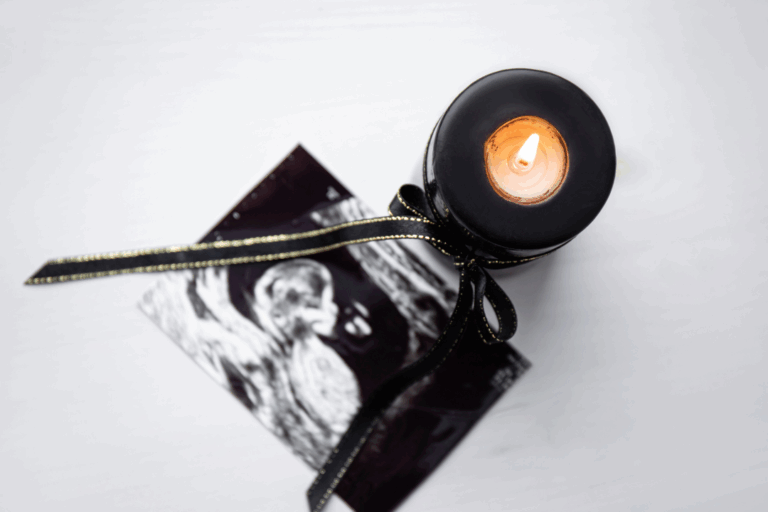Colic baby symptoms and tips for parents is a must read if you’re struggling to settle your baby to sleep, particularly in the evenings. Colic is both frustrating and largely misunderstood. Some parents believe colic is a biological or health problem, when in fact colic is typically much more about overtiredness. In my clinical practice as an Occupational Therapist, I saw hundreds of new parents who were concerned about their baby’s excessive crying. Like Sam’s parents…
Its 5:30 in the evening and Sam has just had his bath. As dad opens the font door, Sam lets out an ear-piercing scream. He’s now six weeks old and exercising his lungs again in what his dad has called the ‘horror hours.’ Sam cries inconsolably for hours every night for the last 4 weeks – something that has his mom and dad anxious and at a loss.
It also came as a surprise. For the first two weeks at home, Sam was such an angel – sleeping easily and peacefully for long stretches. But the honeymoon was over the day he turned 12 days old when he developed colic. His parents are now understandably desperate, asking themselves: “Why is he crying like this?”, “How can I stop the crying?” and “How many more nights of crying lie ahead?”
What is colic?
Colic refers to a condition in which an otherwise healthy baby cries excessively and cannot be comforted, typically for at least three hours a day, three days a week, for three weeks or longer. This is known as Wessel’s Rule of 3’s. Colic is most common in infants aged 2 weeks to 4 months.
What causes babies to get colic?
The exact cause of colic is unknown but because babies who have colic generally pull up their legs and seem uncomfortable after a feed, it was thought that colic was caused by abdominal discomfort. But this theory could not explain why colic classically happens in the evening and why it disappears by three months of age in 90% of babies.
Recent research indicates that colic is not due to an immature digestive system, as has been previously thought. Colic is instead attributed to immaturity of the baby’s brain. Newborn baby’s brains are very sensitive to all the sensory input from their environments. By late afternoon, their brains reach a threshold where they literally cannot process any more stimulation. So the smallest input, such as winds in their tummy or even that last feed of the day is enough to push them into overstimulation or sensory overload. This results in crying.
What are the symptoms of a baby with colic?
The main symptom of colic in a baby is excessive crying that cannot be easily soothed or comforted. This crying typically occurs at the same time of day, usually in the late afternoon or evening, and can last for hours at a time.
Babies with colic may also:
- clench their fists
- arch their back
- pull their legs up to their stomach, and
- have a flushed face or difficulty sleeping.
Some babies with colic may also have trouble feeding, either due to discomfort or because they are too upset to eat.
How do you limit a baby crying with colic?
Caring for a baby with colic can be challenging, but there are several strategies that may help to limit their crying:
Try soothing techniques: Holding or wearing your baby can help to soothe them. Swaddling your baby in a blanket can also provide a sense of security.
Use white noise: Background noise, such as a fan or white noise machine, can help to calm a colicky baby by providing a constant, soothing sound.
Reduce stimulation: Colicky babies can be overstimulated by noise, light, and activity. Try to create a calm, quiet environment for your baby and limit visitors and outside stimulation.
Each baby can tolerate different amount of stimulation. Some babies can cope with more sensory input than others. Sensitive babies become over stimulated very quickly and are more susceptible to colic that lasts longer and is more severe.
Here are more tips on how to soothe a fussy baby:
How do you prevent a baby getting colic?
Most young babies with colic cry in the early evening. How we handle the baby determines whether the crying will last for 15 minutes or 3 hours.
Going back our earlier example, Sam’s parents began to anticipate his excessive crying. They would become anxious and start to burp him vigorously, trying to get up that elusive ‘wind’. But the bouncing and patting only added to the stimulation. Unsuccessful, his parents would turn the light on and take him to the TV room so that they can interact while trying to calm him; but the lights and noise also exasperated the problem. They try singing, talking, lying down. They offer Sam another feed, change his nappy and hold him in various positions. Finally three hours later an exhausted Sam plunges into a fretful sleep.
Each of these soothing strategies are useful if the timing is appropriate. But by the time Sam is overstimulated; even well intentioned attempts to calm him are likely to contribute to overstimulation.
4 Tips to limit crying and prevent a colic episode:
- In the first three months, limit day time stimulation. Just being alive is exciting enough and most babies do not need too much stimulation to enhance development.
- Have a flexible daytime sleep routine. Under three months of age your baby should only be awake for an hour to an hour and half between sleeps. By making sure your baby sleeps regularly, you can prevent them from becoming over stimulated. This is because their brain will have time to recover from stimulation and process what they have ‘learnt’ from the world.
- Watch for signs of overstimulation during the day and especially in the evening. Look for irritability, squirming, arching, frantic movements, frowning, yawning, and hiccups. When you notice these signs, take your baby out of the stimulating environment.
- Use sensory calming strategies such as: swaddling; rocking your baby or baby wearing. Sticking to just one calming strategy for five minutes at least.
How long does colic last with a baby?
Colic typically starts at two weeks and peaks at six weeks. By 12 weeks your baby will be better able to deal with sensory stimulation and colic abates around this time.
Sam surprised his parents a day after he turned six weeks with his first smile! Somehow, just this happy little milestone made it easier for his mom and dad to manage his colic for the next 6 weeks. As hard as this period is, remember that it will pass. And, like Sam’s parents, by the end of the first three months, you’ll be completely enchanted by your baby’s cuteness.
If your baby is not thriving and crying excessively, it’s important to speak to your healthcare practitioner to determine if there are any other health or clinical causes for their crying.




